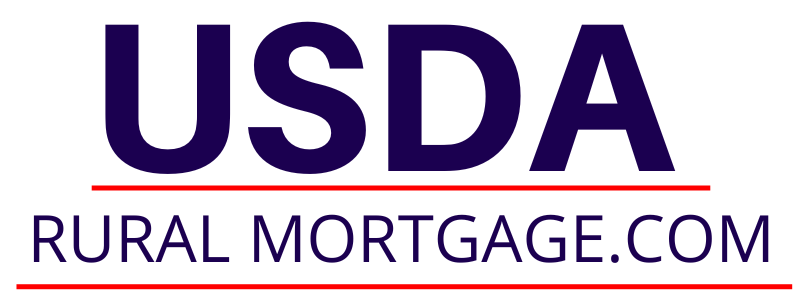
USDA Loans Troy, Indiana
The Troy USDA Home loan is a great choice for borrowers looking to buy a home with NO MONEY DOWN. When home buyers hear USDA rural they often think of farms or underdeveloped areas. In most cases you can find USDA eligible properties just outside of major cities. USDA is creating loans all across the country, including suburban towns that are anything but rural. In fact, in some states like Indiana, the vast majority of the state is eligible for USDA loans.
Find out if a property in Troy, IN is USDA home eligible by calling 888-767-0554. USDA home loan experts are standing by and ready to help.
Connect with a licensed USDA specialist, ask questions, see what cities qualify, and get free quotes.
Finding the Perfect Home Loan
Thousands of consumers in Troy, IN are ready for home ownership. Securing the right home loan doesn’t have to be hard, we have solutions for less than perfect credit and even those with little savings or down payment. To help Troy home buyers overcome challenges we offer more programs and the extra benefit of wholesale rates. We simplify the home buying and refinancing challenges presented by 2024 Troy mortgage guidelines. At USDA RuralMortgage.com, our mission is to get you approved for a Troy USDA mortgage and into your home with payments you can afford. Even if you think you won’t qualify, our highly trained specialists will work with you closely on an individual basis to:
- Review your finances to find a payment you can afford.
- Improve your credit score if needed to qualify.
- Obtain pre-approval to shop for a USDA Eligible Home.
- Secure a loan and purchase your new home!
Working around Credit Issues with Top Rated Specialists
The USDA Rural Mortgage team is celebrating its 27th year in business. Our experience allows for consumer mortgage confidence especially with Troy, IN first time home buyers. We navigate consumers through the mortgage process, explain options and find what choice works best for you. We specialize in more than just USDA rural mortgage loans. Check out consumer home buyer GRANT options, FHA loans and our Bad credit home loan options.
Get on the Path to Home Ownership. We got your Back!
Buy a Home with No Money Down

Get Pre-Qualified Now
USDA Benefits
- No down payment required
- Low 30 year fixed rate
- 102% financing (100% plus the guarantee fee that can be financed or paid for by the seller)
- Can finance closing costs if appraisal above sales price
- Competitive rates (as set by the underwriting lenders)
- Minimal mortgage insurance required
- No cash contribution required from borrower
- Gift Funds Allowed
- No maximum loan amount (although there are family income limits)
- No reserves required
- Streamlined credit approval for scores above 640
- Can refinance an existing USDA loan to get a better interest rate if available
Find your Troy USDA Home Loan 888-767-0554.
Troy (Ancient Greek: Τροία, Troía, Ἴλιον, Ílion or Ἴλιος, Ílios; Latin: Troia and Ilium;[note 1] Hittite: 𒌷𒃾𒇻𒊭 Wilusa or 𒋫𒊒𒄿𒊭 Truwisa;[3][4] Turkish: Truva or Troya) was a city in the northwest of Asia Minor (modern Turkey), southwest of the Çanakkale Strait, south of the mouth of the Dardanelles and northwest of Mount Ida.[note 2] The location in the present day is the hill of Hisarlik and its immediate vicinity. In modern scholarly nomenclature, the Ridge of Troy (including Hisarlik) borders the Plain of Troy, flat agricultural land, which conducts the lower Scamander River to the strait. Troy was the setting of the Trojan War described in the Greek Epic Cycle, in particular in the Iliad, one of the two epic poems attributed to Homer. Metrical evidence from the Iliad and the Odyssey suggests that the name Ἴλιον (Ilion) formerly began with a digamma: Ϝίλιον (Wilion);[note 3] this is also supported by the Hittite name for what is thought to be the same city, Wilusa. According to archaeologist Manfred Korfmann, Troy’s location near the Aegean Sea, as well as the Sea of Marmara and the Black Sea, made it a hub for military activities and trade, and the chief site of a culture that Korfmann calls the “Maritime Troja Culture”, which extended over the region between these seas.[5]
The city was destroyed at the end of the Bronze Age – a phase that is generally believed to represent the end of the Trojan War – and was abandoned or near-abandoned during the subsequent Dark Age. After this, the site acquired a new, Greek-speaking population, and the city became, along with the rest of Anatolia, a part of the Persian Empire. The Troad was then conquered by Alexander the Great, an admirer of Achilles, who he believed had the same type of glorious (but short-lived) destiny. After the Roman conquest of this now Hellenistic Greek-speaking world, a new capital called Ilium (from Greek: Ἴλιον, Ilion) was founded on the site in the reign of the Roman Emperor Augustus. It flourished until the establishment of Constantinople, became a bishopric, was abandoned, repopulated for a few centuries in the Byzantine era, before being abandoned again (although it has remained a titular see of the Catholic Church).
